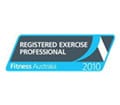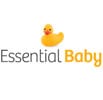Journaling is a simple yet transformative practice that offers numerous benefits for our mental, emotional, and even physical well-being.
Supported by scientific research, the advantages of journaling and provides effective techniques to help you harness its full potential.
Whether you’re seeking emotional release, stress reduction, personal growth, or improved well-being, journaling can be a powerful tool.
Discover the remarkable benefits of journaling and learn how to incorporate this practice into your daily life:
Emotional and Mental Health Benefits: Scientific evidence highlights the positive impact of journaling on emotional and mental health. By putting pen to paper, you can experience the following benefits:
1. Emotional Release: A study published in the Journal of Experimental Psychology found that expressive writing about emotional experiences can reduce stress and improve emotional well-being (Pennebaker & Beall, 1986).
The act of journaling provides a safe space for processing and releasing pent-up emotions, allowing you to gain clarity and find solace in challenging times.
2. Increased Self-Awareness: Research conducted at the University of California, Los Angeles (UCLA), showed that journaling enhances self-awareness, helping individuals gain a deeper understanding of their thoughts, emotions, and behavioural patterns (Baikie & Wilhelm, 2005).
By regularly reflecting on your journal entries, you can identify triggers, track progress, and make conscious changes in your life.
3. Enhanced Emotional Intelligence: According to a study published in the Journal of Consulting and Clinical Psychology, expressive writing can enhance emotional intelligence by promoting self-reflection and empathy (Mehl et al., 2006).
Journaling allows you to explore and articulate your own emotions, leading to a greater ability to understand and empathize with others.
Stress Reduction and Improved Well-being: Journaling has been found to have a profound impact on stress reduction and overall well-being. The evidence suggests:
1.Stress Reduction: A study published in Psychosomatic Medicine revealed that expressive writing can reduce stress-related symptoms and improve immune function (Smyth, 1998).
By transferring your thoughts and worries onto paper, you create a sense of relief and unload the burden from your mind, leading to reduced stress levels.
2.Increased Gratitude: Research published in the Journal of Happiness Studies demonstrated that gratitude journaling can enhance well-being, increase positive emotions, and reduce depressive symptoms (Emmons & McCullough, 2003).
By regularly noting down three things you are grateful for, you shift your focus to the positive aspects of life, fostering a greater sense of contentment and happiness.
3.Improved Sleep: A study conducted at the University of Rochester Medical Center showed that journaling before bedtime can improve sleep quality by emptying the mind of intrusive thoughts (Krizan & Herlache, 2017).
By writing down your concerns or reflections on the day, you create a mental separation from them, allowing for a more peaceful and restful sleep.
Effective Tips for Journaling– To maximize the benefits of journaling, here are some effective techniques to consider:
1.Freewriting: Inspired by research conducted by Dr. James Pennebaker, freewriting involves writing without judgment or concern for grammar, allowing thoughts and emotions to flow naturally (Pennebaker & Beall, 1986).
Set a timer for a specific duration (e.g., 10 minutes) and write continuously, letting your thoughts unfold on the pages.
2.Gratitude Journaling: Supported by research published in Emotion, gratitude journaling involves writing down three things you’re grateful for each day (Emmons & McCullough, 2003).
Cultivate a positive mindset by focusing on the blessings and moments of gratitude in your life, no matter how small they may seem.
3.Reflection and Analysis: Regularly reviewing and analysing past journal entries can provide insights into patterns in thoughts and behaviours, aiding personal growth and self-discovery.
Look for recurring themes, emotions, or challenges, and use this information to identify areas for improvement and set goals.
Summary
Embracing the practice of journaling can lead to significant positive changes in your life.
Scientific evidence supports its benefits, including improved emotional well-being, reduced stress levels, and enhanced personal growth.
By incorporating effective journaling techniques, such as freewriting, gratitude journaling, and reflection, you can unlock the transformative power of this simple yet profound practice.
Start journaling today and experience the remarkable benefits for yourself.
Cameron Corish has been caring and achieving results for the local Wishart, Mansfield and Mt Gravatt community for over 15 years. Together with the Core Health Coaching Team, he takes a multi-disciplined and holistic approach to health and fitness addressing the physical, mental and emotional aspects of one’s health.
Ready to feel and look your best? Book a time for a FREE chat and see how we can make a difference in your life. Book here calendly.com/corehealthcoaching or email Cameron at cameron@corehealthcoaching.com.au
References:
Baikie, K. A., & Wilhelm, K. (2005). Emotional and physical health benefits of expressive writing. Advances in Psychiatric Treatment, 11(5), 338-346.
Cameron, J. (1992). The Artist’s Way: A Spiritual Path to Higher Creativity. TarcherPerigee.
Emmons, R. A., & McCullough, M. E. (2003). Counting blessings versus burdens: Experimental studies of gratitude and subjective well-being. Journal of Personality and Social Psychology, 84(2), 377-389.
Krizan, Z., & Herlache, A. D. (2017). Sleep Diary and Polysomnographic Studies of Sleep Disturbance Following a Written Disclosure Intervention for Worry. Journal of Experimental Psychology: General, 146(10), 1506-1514.
Mehl, M. R., Pennebaker, J. W., Crow, D. M., Dabbs, J., & Price, J. H. (2006). The Electronically Activated Recorder (EAR): A device for sampling naturalistic daily activities and conversations. Behavior Research Methods, 38(2), 513-521.
Pennebaker, J. W., & Beall, S. K. (1986). Confronting a traumatic event: Toward an understanding of inhibition and disease. Journal of Abnormal Psychology, 95(3), 274-281.
Smyth, J. M. (1998). Written emotional expression: Effect sizes, outcome types, and moderating variables. Journal of Consulting and Clinical Psychology, 66(1), 174-184.















[…] Journaling is a powerful tool for processing emotions and gaining insights into your thoughts and behaviours. […]